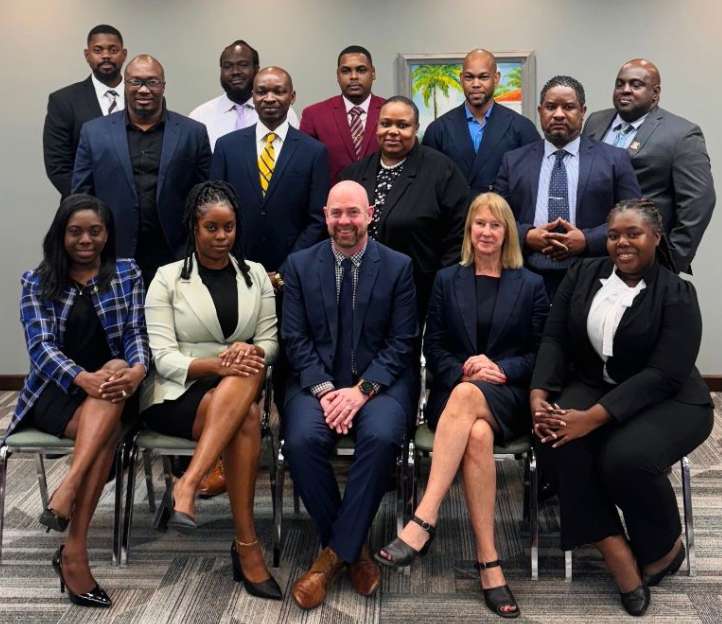BVI Police Partner with UK Law Enforcement for International Crime Prevention Training.
The British Virgin Islands has recently taken a significant step in bolstering its efforts against international financial crime by hosting a specialized training program for local law enforcement and legal professionals. This two-week intensive course, funded by the United Kingdom and conducted by experts from the UK’s National Crime Agency Proceeds of Crime Centre, focused on financial investigation and asset confiscation techniques. This initiative underscores the territory’s commitment to aligning itself with global standards in combating illicit finance, a critical component in maintaining the integrity of its financial system and contributing to international efforts against criminal activity. The training took place at an undisclosed location in the BVI and involved personnel from the Royal Virgin Islands Police Force, the Financial Investigation Agency, the Office of the Director of Public Prosecutions, and the Attorney General’s Chambers, signifying a collaborative approach to tackling financial crime across relevant agencies. This move echoes the fictional narratives of international crime-solving often depicted in popular media, highlighting the real-world necessity for such specialized training and collaboration in a globally connected world.
The timing of the training coincides with a broader, intensified focus on combating corruption and illicit finance by the UK government. Recently, the UK announced sanctions against three high-profile individuals accused of large-scale corruption and the laundering of stolen assets. These sanctions, which include travel bans and asset freezes, target individuals identified as instrumental in siphoning substantial wealth from their respective countries, undermining democratic processes, and hindering economic development. This proactive stance by the UK reflects a growing international recognition of the pervasive and destabilizing effects of corruption and the need for coordinated action to hold those responsible accountable. The training provided in the BVI, therefore, becomes part of a larger strategy aimed at strengthening international cooperation in pursuing and recovering illicit assets while simultaneously building capacity within individual jurisdictions to tackle financial crime effectively.
The individuals targeted by the UK sanctions include Dmitry Firtash, a Ukrainian oligarch accused of diverting hundreds of millions of dollars and laundering the funds, including through investments in UK properties; Isabel Dos Santos, labeled “Africa’s richest woman,” accused of embezzling over £350 million from Angolan state companies; and Aivars Lembergs, a Latvian politician implicated in bribery, forgery, and money laundering. These cases exemplify the complex and often transnational nature of financial crime, involving intricate networks and sophisticated methods to conceal illicit activities. The UK’s sanctions against these individuals and their associates send a strong message that such behavior will not be tolerated and that those who engage in corrupt practices will face consequences. This strong stance complements the capacity-building efforts being undertaken in the BVI, creating a multi-pronged approach to tackling financial crime at both the international and national levels.
The UK government’s renewed focus on combating corruption and illicit finance is spearheaded by Foreign Secretary David Lammy and Home Secretary Yvette Cooper. They emphasize the detrimental impact of corruption on societies, economies, and global security. Their commitment to tackling dirty money and those who profit from it underscores the government’s determination to strengthen international cooperation and enhance domestic capabilities to pursue and recover illicit assets. The efforts undertaken in the BVI, therefore, align perfectly with this broader initiative, demonstrating the UK’s commitment to supporting overseas territories in strengthening their legal and enforcement frameworks to combat financial crime. This collaborative effort aims to create a more robust and transparent global financial system, deterring illicit activities and promoting sustainable economic growth.
The National Crime Agency’s International Anti-Corruption Coordination Centre (IACCC) plays a crucial role in the UK’s efforts to combat international corruption. The IACCC has facilitated the recovery of substantial sums of illicit assets and supported investigations in numerous countries. In Angola alone, the IACCC has been instrumental in identifying and freezing hundreds of millions of pounds linked to criminal activities. This demonstrates the effectiveness of international collaboration and information sharing in dismantling complex criminal networks and recovering stolen assets. The training program in the BVI directly benefits from the expertise and resources of agencies like the IACCC, strengthening the territory’s capacity to contribute to this global effort.
The UK’s commitment to combating international crime is further underscored by the background of its Prime Minister, Keir Starmer, a former head of the Crown Prosecution Service. His experience in prosecuting complex criminal cases brings a unique perspective to the government’s approach to tackling financial crime. The recent training initiative in the BVI, coupled with the broader sanctions and international collaborations, signifies a comprehensive and coordinated strategy to address the challenges posed by corruption and illicit finance. These efforts aim not only to hold individuals accountable but also to create a more secure and transparent global financial system, protecting economies and promoting sustainable development. By investing in capacity building and fostering international cooperation, the UK and the BVI are working together to disrupt criminal networks and ensure that those who engage in illicit activities are brought to justice.
Share this content:












Post Comment